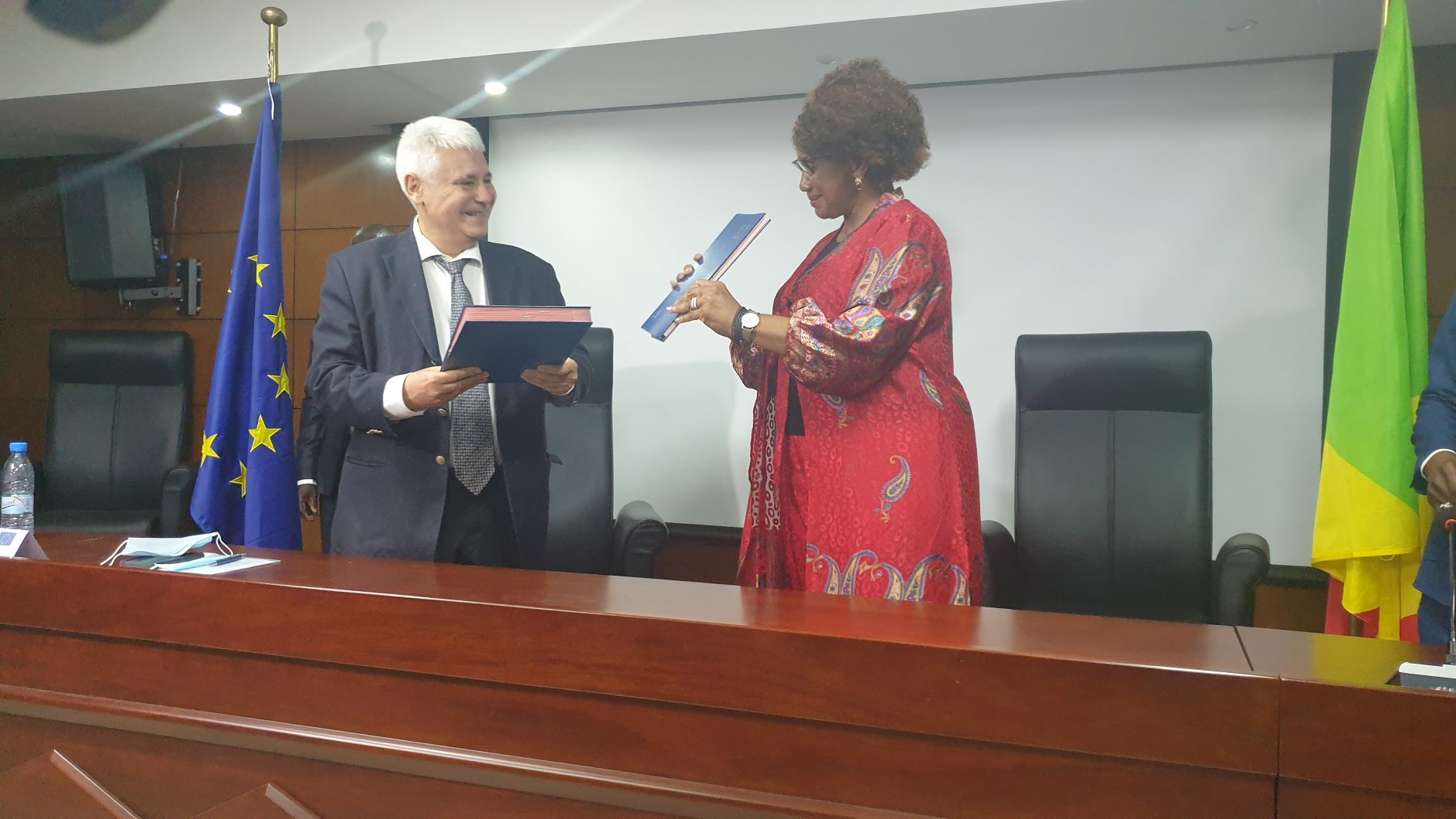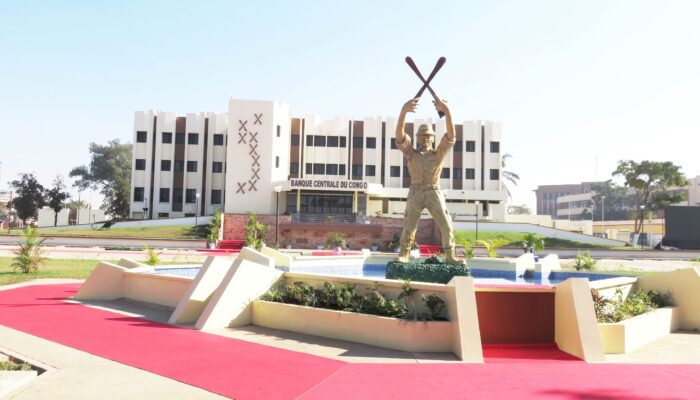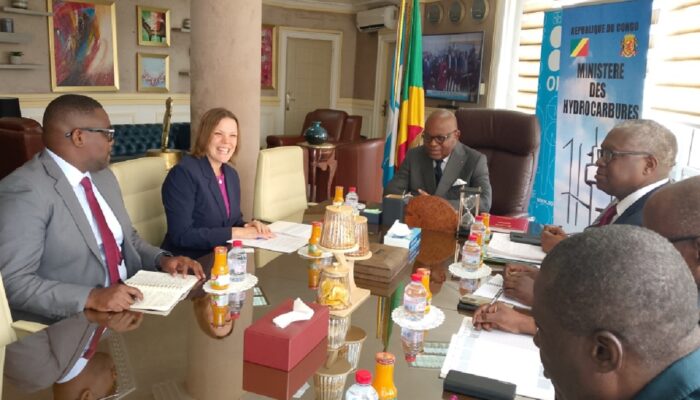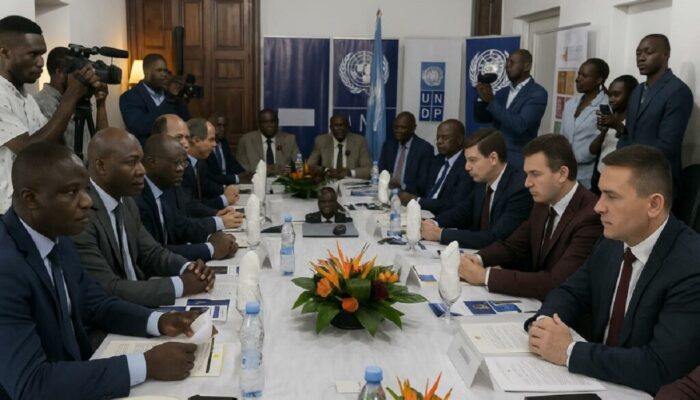The European Union (EU) is one of the partners of the Republic of Congo with a portfolio estimated at nearly 50 billion FCFA for around twenty socio-economic projects. At the end of his mandate, the EU ambassador, Giacomo Durazzo, discussed the state of cooperation with Congo on 9 July in Brazzaville.
The outgoing EU Ambassador, Giacomo Durazzo, was reassuring about Congo-EU cooperation. He was received by the Minister of Planning, Statistics and Regional Integration, Ingrid Olga Ghislaine Ebouka-Babackas, National Authorising Officer of the European Development Fund. “This was my last official meeting with the Minister of Planning. There is always some bitterness when you leave a country, but I think that in any case Congo is a fantastic country. Working with the Minister of Planning and her team was a very good experience ,” said Giacomo Durazzo.
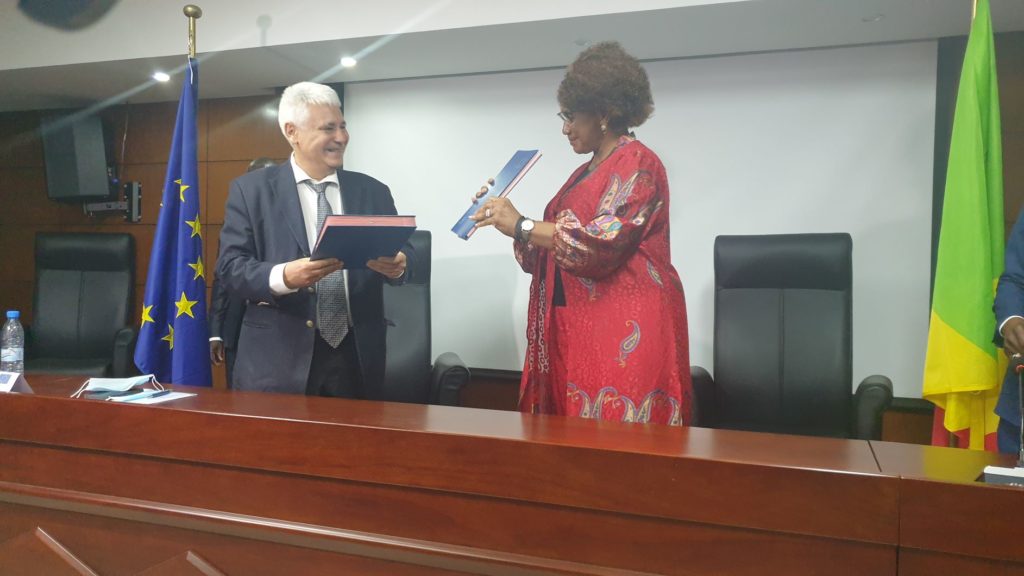
Over the past three years, collaboration between the EU delegation and the Congolese government has intensified, ranging from governance (economic, forestry) to digitalization and infrastructure projects. Cooperation in the forestry sector, including the very recent conference on afforestation and reforestation, according to the outgoing ambassador, has developed and diversified, taking into account the priorities of the Congolese authorities contained in the National Development Plan 2022-2026.
The European partner has indeed released 15 million euros, or approximately 10 billion FCFA, to finance the digitalization of public services, technical assistance and improvement of governance in the sector. The modernization of the public and private sector in Congo is one of the priorities of both parties. ” We have the project on digitalization, which I find very important, which really accompanies the important change linked to social aspects, to access to services for the most deprived population ,” said Giacomo Durazzo.
The “Resilient Cities” project, with technical assistance to the municipalities of Nkayi (Bouenza) and Owando (Cuvette), is one of the EU’s flagship interventions in Congo. After the training phase for staff from town halls and local committees, the two pilot localities benefit from rainwater drainage works. The EU has granted 21 billion FCFA for the entire project, including 12.5 billion FCFA for the construction of pipeline and sanitation works.



